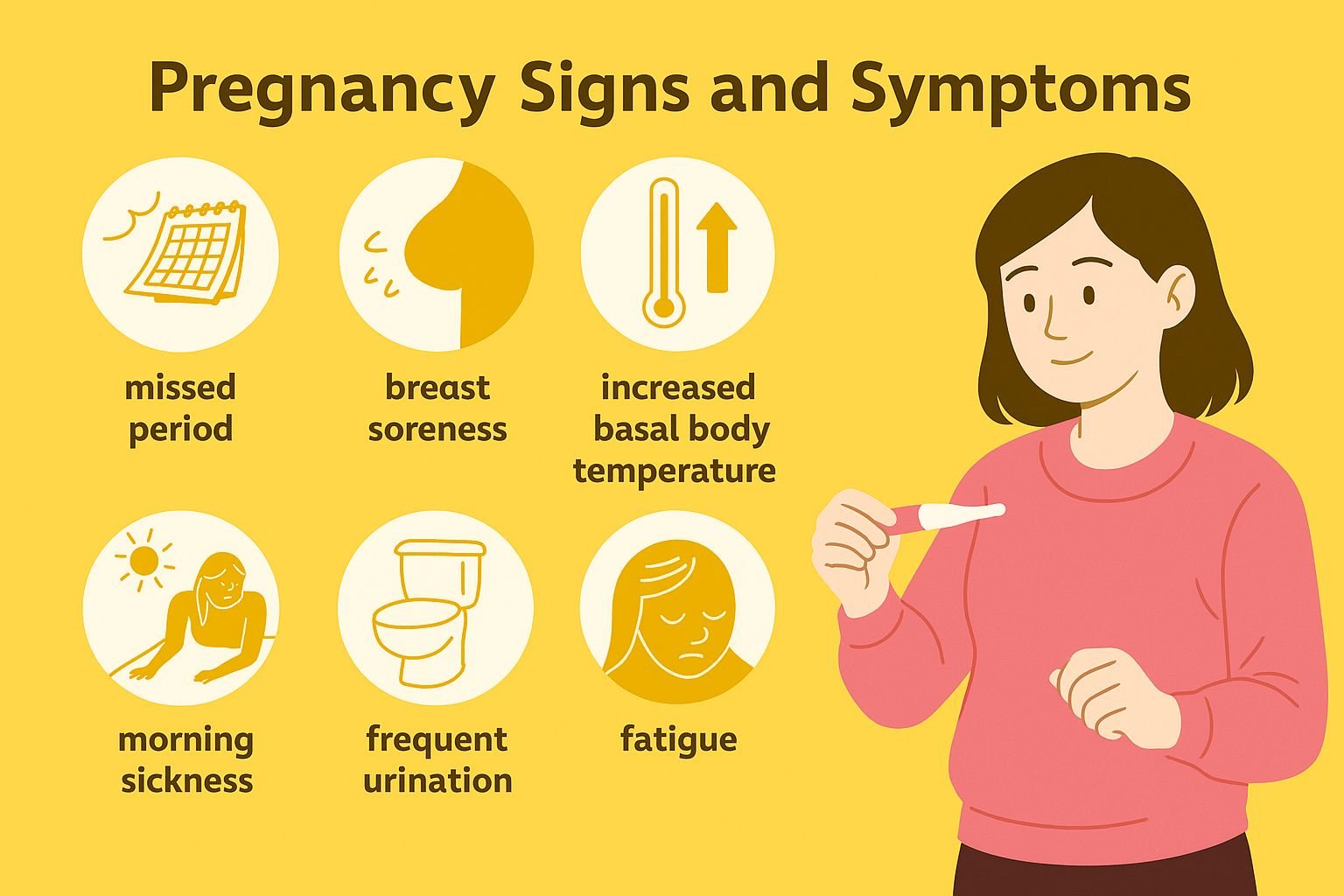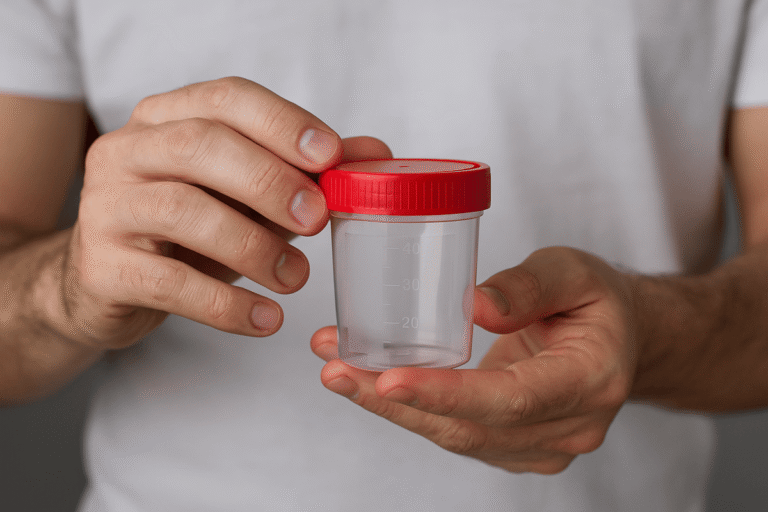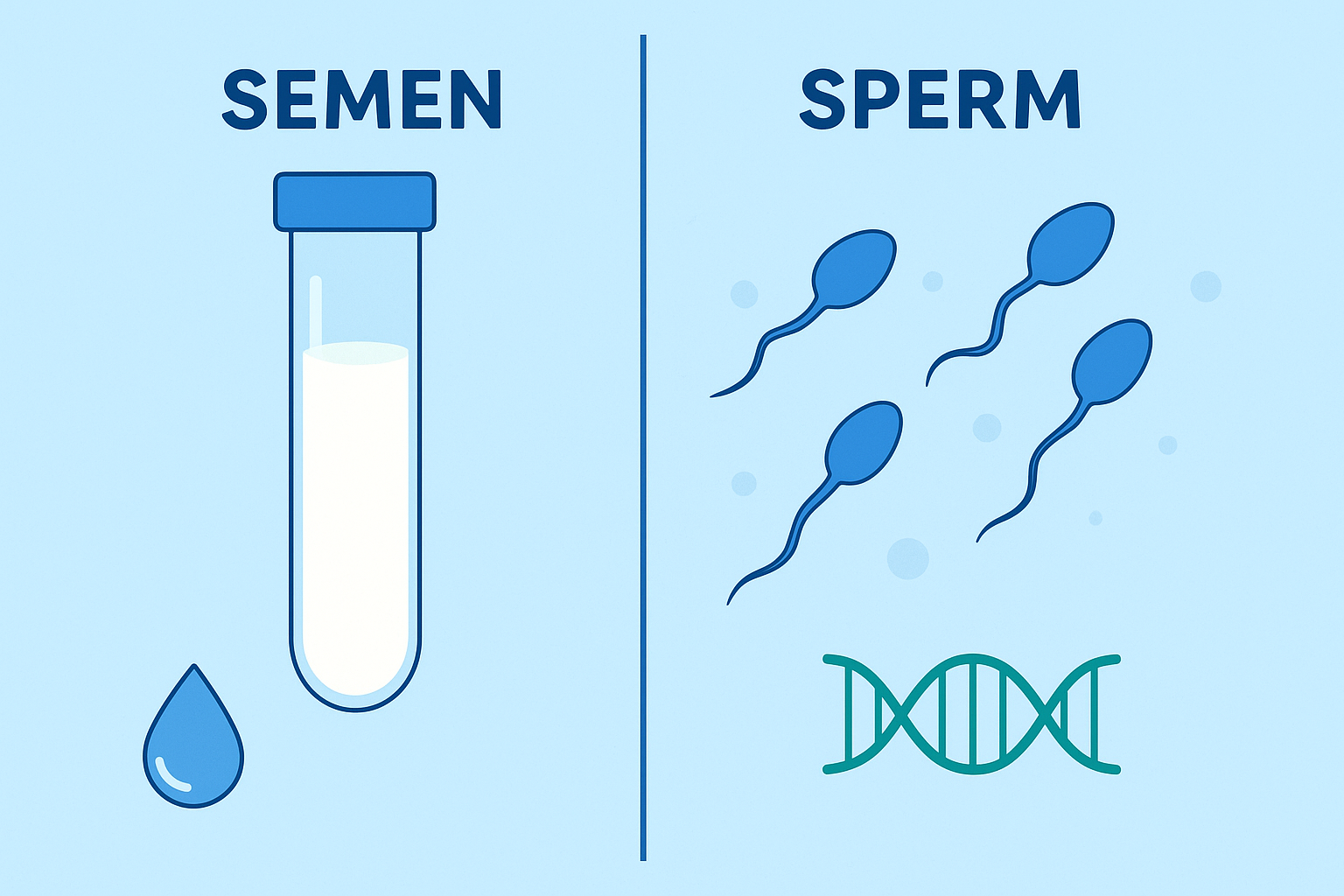Pregnancy is a remarkable journey that begins long before you feel your baby kick or see that first ultrasound image. From the moment of conception, your body undergoes dramatic changes driven by a surge of hormones and biological processes—all in preparation to support and nurture new life. Whether you’re actively trying to conceive, recently missed a period, or just curious about what pregnancy feels like, understanding the early and late Pregnancy Signs and Symptoms can help you feel more confident and in control.
This comprehensive guide breaks down early pregnancy symptoms, later-stage changes, unusual signs, and when to see a doctor—all explained in a realistic, warm, and medically accurate way.
Also read: Can Korean Red Ginseng Improve Your Love Life
Early Signs of Pregnancy
The first few weeks of pregnancy are often subtle, with symptoms that can easily be mistaken for stress, PMS, or illness. However, these initial signs are your body’s way of saying, “Something new is happening.”
1. Missed Period
Let’s start with the most obvious clue: a missed period. If your cycle is regular and your period doesn’t arrive as expected, pregnancy is a strong possibility. However, stress, extreme weight loss, or illness can also delay menstruation—so it’s best to confirm with a home pregnancy test or visit your GP for further evaluation.
2. Nausea and Vomiting
Often called “morning sickness,” this classic symptom doesn’t just strike in the morning. For many, nausea lingers throughout the day, especially between weeks 6 and 12 of pregnancy. Some women may experience vomiting, while others just feel queasy.
Pro tip: Try eating bland snacks like crackers or ginger tea in the morning before getting out of bed. If the nausea becomes unbearable, talk to your healthcare provider about safe treatment options.
3. Breast Changes
Swollen, tender breasts with darker areolas are early signs many women notice within the first few weeks. Your body is preparing for breastfeeding—thanks to increasing levels of estrogen and progesterone. Veins on the breast may also appear more prominent due to increased blood flow.
4. Fatigue
That bone-deep exhaustion you feel isn’t just in your head. Your body is working overtime to support your developing baby. Rising levels of progesterone can cause sleepiness, while your metabolism slows to conserve energy. If you’re feeling unusually tired, listen to your body and rest as needed.
Also, consider checking for iron-deficiency anemia, a common culprit of fatigue during pregnancy. Your doctor may suggest iron-rich foods or iron supplements if necessary.
5. Frequent Urination
Even in the early weeks, hormonal changes increase kidney activity and blood flow, making your bladder work harder. Combine that with a growing uterus pressing on your bladder, and you may find yourself visiting the bathroom more often than usual.
6. Food Cravings or Aversions
Craving pickles with ice cream? Not unusual. Hormonal fluctuations can lead to strong desires for certain foods—and sudden disgust toward others. Some women also report a metallic taste in the mouth, known as dysgeusia.
If you develop a craving for non-food items like dirt, chalk, or paper (a condition called pica), it may indicate a nutrient deficiency. Let your healthcare provider know.
Later Signs and Common Discomforts
As your pregnancy progresses, your body continues to adapt in sometimes unexpected ways. Here’s what you might experience in the second and third trimesters.
7. Back Pain
Backache affects nearly 1 in 3 pregnant women. Blame it on loosening ligaments, extra weight, and postural shifts. Supportive shoes, prenatal yoga, and physical therapy can help reduce discomfort. Swimming is particularly helpful—it eases pressure on joints while strengthening muscles.
8. Shortness of Breath
As your uterus grows, it pushes against your diaphragm, making it harder to take deep breaths. Early in pregnancy, rising progesterone levels also play a role in changing how you breathe.
If breathlessness is sudden or accompanied by chest pain, palpitations, or extreme fatigue, seek medical attention right away.
9. Constipation
Slower digestion caused by pregnancy hormones can lead to hard, infrequent stools. To relieve constipation:
- Drink plenty of water
- Eat fiber-rich foods (whole grains, fruits, vegetables)
- Stay active (walking, prenatal yoga)
Avoid over-the-counter laxatives unless approved by your GP.
10. Hemorrhoids
Constipation and increased pelvic pressure can cause swollen veins around the anus, known as hemorrhoids. Soothing strategies include:
- Warm saltwater baths
- Hemorrhoid creams
- Preventing constipation
These usually resolve after delivery, but if pain or bleeding persists, see your doctor.
11. Heartburn and Indigestion
Hormonal changes relax the valve between your stomach and esophagus, causing acid reflux. Try eating smaller meals, avoiding spicy/fatty foods, and elevating your head while sleeping. If symptoms persist, your GP may recommend safe antacids or acid blockers.
12. Leg Cramps
Nighttime leg cramps are surprisingly common, especially in the third trimester. They may be caused by changes in blood flow or a buildup of lactic acid. During an episode, gently stretch the leg and massage the muscle. Magnesium supplements may help—but only under medical supervision.
13. Mood Swings and Emotional Changes
From irritability to elation, pregnancy is a hormonal rollercoaster. About 1 in 10 women experience depression during pregnancy. If you’re feeling persistently sad, anxious, or hopeless, don’t try to tough it out. Help is available and effective—reach out to your GP, midwife, or a mental health professional.
Also read: PID and Infertility: Protect Your Future Fertility Today
Other Notable Symptoms
Some women also experience:
- Vaginal discharge – a milky, odorless discharge is normal, but see a doctor if it’s itchy, smelly, or painful.
- Vaginitis – pregnancy can increase susceptibility to infections like thrush or bacterial vaginosis.
- Tingling or numbness in hands – due to carpal tunnel syndrome, caused by fluid buildup around nerves.
- Varicose veins and swelling – result from increased blood volume and pressure from the uterus on pelvic veins.
- Skin itching – particularly on the belly or breasts due to stretching. If itching is severe or involves palms/soles, call your doctor—it could signal a liver issue like cholestasis.
Also read: How to Take Emergency Contraceptive Pills to Avoid Pregnancy
Warning Signs: When to Seek Medical Help
While many pregnancy symptoms are harmless, some could signal complications. Contact your healthcare provider immediately if you notice:
- Vaginal bleeding
- Severe abdominal pain
- Sudden swelling of the face, hands, or feet
- High fever or persistent vomiting
- Painful or burning urination
- Vision problems or severe headache
- Decreased fetal movement (in later pregnancy)
- Leaking fluid from the vagina (your water may have broken)
Confirming Pregnancy
If you suspect you’re pregnant, the best first step is to take a home pregnancy test. These are most accurate after a missed period. Your doctor may confirm pregnancy with:
- Urine test
- Blood test
- Ultrasound scan
Early confirmation helps ensure you get the right prenatal care from the very beginning.
Final Thoughts
Pregnancy symptoms are as diverse as the women who experience them. Some may have every symptom in the book; others may feel almost nothing at all. The key is to know your body, trust your instincts, and seek care when something doesn’t feel right.
Whether you’re overjoyed, anxious, or somewhere in between—you’re not alone. From the first flutter of nausea to the last leg cramp before labor, your journey is uniquely yours. Be kind to yourself, ask questions, and never hesitate to reach out to a healthcare professional.




